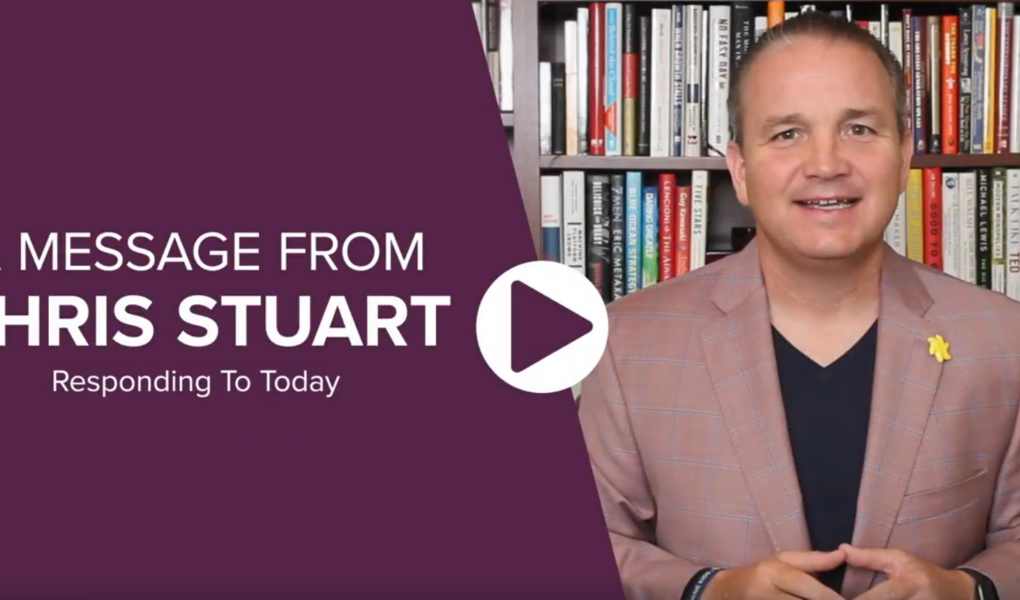As promised in my previous communication, we’re staying connected to the various Relief Programs being announced by the government and to the guidance being provided by NAR. The specific information we’ve summarized is below for your reference. But before I get to that, I’d like to share a few perspectives and observations.
I’m getting so many inspiring stories from our network. As expected, you’re out there selflessly serving your neighbors, providing a sense of security and comfort. I’m hearing of Agents and Offices hosting video conferences to provide updates to active clients and homeowners, stories of our network working with their elderly neighbors to shop for groceries and other matters to ensure their well-being, stories of agents providing home walk-throughs via FaceTime video calls, and so many other wonderful activities to provide certainty in these uncertain times.
Isn’t it interesting how our DISTANCE can bring us CLOSER?!
If you haven’t seen this yet, some of the largest iBuyers are suspending their buying activity as a result of this crisis. So, this is an opportunity to reach out to your customers and contacts to see if they’ve been impacted by this change in course and determine if you can serve them in anyway. The “I” in iBuyer stands for “instant” and in uncertain times such as these, things can change in an instant. Which is what makes each one of you so critical to your communities!
Read more about iBuyer here. See the opportunity illustrated in this one chart.
You’re there, unwavering, committed to serve and selfless in your approach to providing value and there’s nothing “instant” about that!
As to the Relief Programs update, please see below for more information that we believe could be helpful to you and your companies. And a special “thank you” to our team members, Kathleen Hunt and Jo-Ann Sloan, for their commitment to monitoring these programs on an on-going basis to allow us to provide you with these summaries. We’ll keep them coming!
Please continue your diligence around all matters related to your safety and the safety of your loved ones. And remember, “things turn out best for those that make the best of the way things turn out”! Stay safe and healthy and we’ll talk again soon!
Sincerely,
Chris
Federal Response
Congress has passed – and President Trump has signed – the Families First Coronavirus Response Act which provides support to American workers, families, and businesses, including the expansion of paid sick leave and family medical leave. It also includes refundable tax credits for small businesses and self-employed individuals to cover the cost of the leave. Here are some highlights of the legislation:
Family Medical Leave Expansion
- Covers employees at businesses with fewer than 500 employees
- Provides a refundable tax credit for eligible self-employed individuals equal to their qualified family leave equivalent
- Provides employers a refundable tax credit equal to certain family leave wages paid to employees
- Allows up to 12 weeks of certain virus-related family medical leave at pay of at least 2/3 of regular pay through the end of 2020 (however, employees must use vacation days, personal leave, or unpaid time off for first two weeks)
Paid Sick Leave Expansion
- Covers employees at businesses with fewer than 500 employees
- Allows two weeks of paid sick leave through the end of 2020 (80 hours for full-time employees; pro-rata rules for part-time employees)
Medicare, Medicaid, Health Insurance and Unemployment Changes
- Requires insurers, Medicare, Medicaid, and other federal health programs to fully cover testing and related services for COVID-19, without cost-sharing
- Increases funding to Medicaid to help cover uninsured populations
Impact of Families First Coronavirus Response Act on NAR Members
- Larger real estate brokers (with 500 employees or more) are exempt from the requirements of the expansion of the FMLA but will also not get the tax credit because the credit is available only for family leave wages required to be paid by the Emergency Family and Medical Leave Expansion Act.
- The payroll tax credit provided to employers will provide cash to them relatively quickly as it is creditable against their Social Security tax liability (employer’s portion), which is generally due monthly or semi-weekly, depending on the amount due.
- Self-employed individuals may not receive the benefit of the tax credits as quickly as do larger employers because they are creditable against the income or the SE tax, which are not due as quickly as are employer-paid Social Security taxes. However, with most self-employed required to pay quarterly estimated tax payments, they will not have to wait until the end of the tax year to see the cash.
Financial Resources
Currently, a Small Business Administration Loan Relief Program is in place as well as an IRS Tax Deferment Program.
- Small Business Administration (SBA) Loan Relief Program
- Eligible small businesses can receive up to $2M in loans at a 3.75% interest rate
- Eligible states and counties can be found here
- IRS Tax Deferment Program
- Businesses can defer up to $10 million of payments owed to the IRS, interest-free, for 90 days.
- Individuals can defer up to $1 million of payments owed.
- Taxpayers must still file their tax returns by the April 15th deadline.
- Additional information on this plan can be found here (IRS) and here (US Treasury)
Additional Resources




